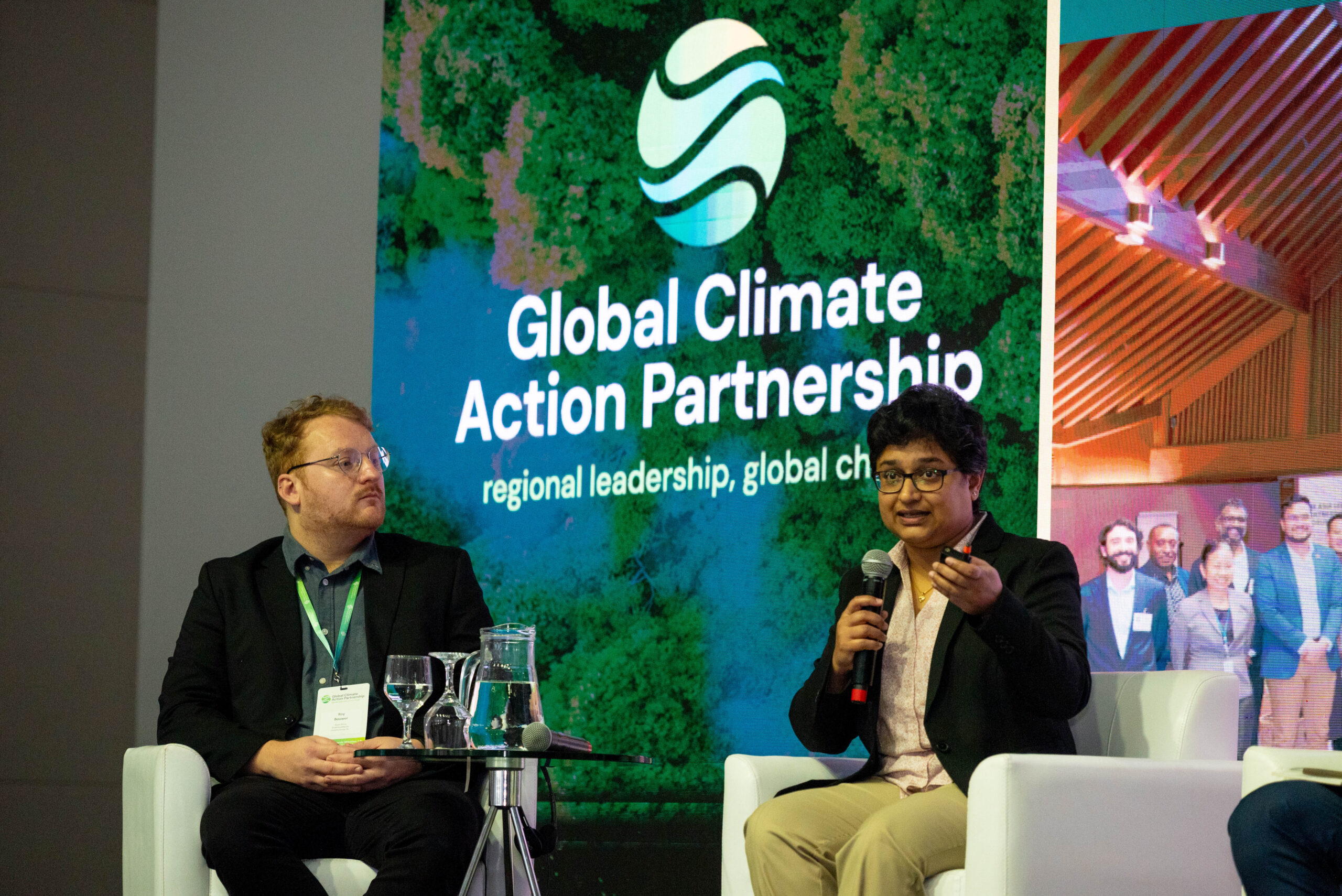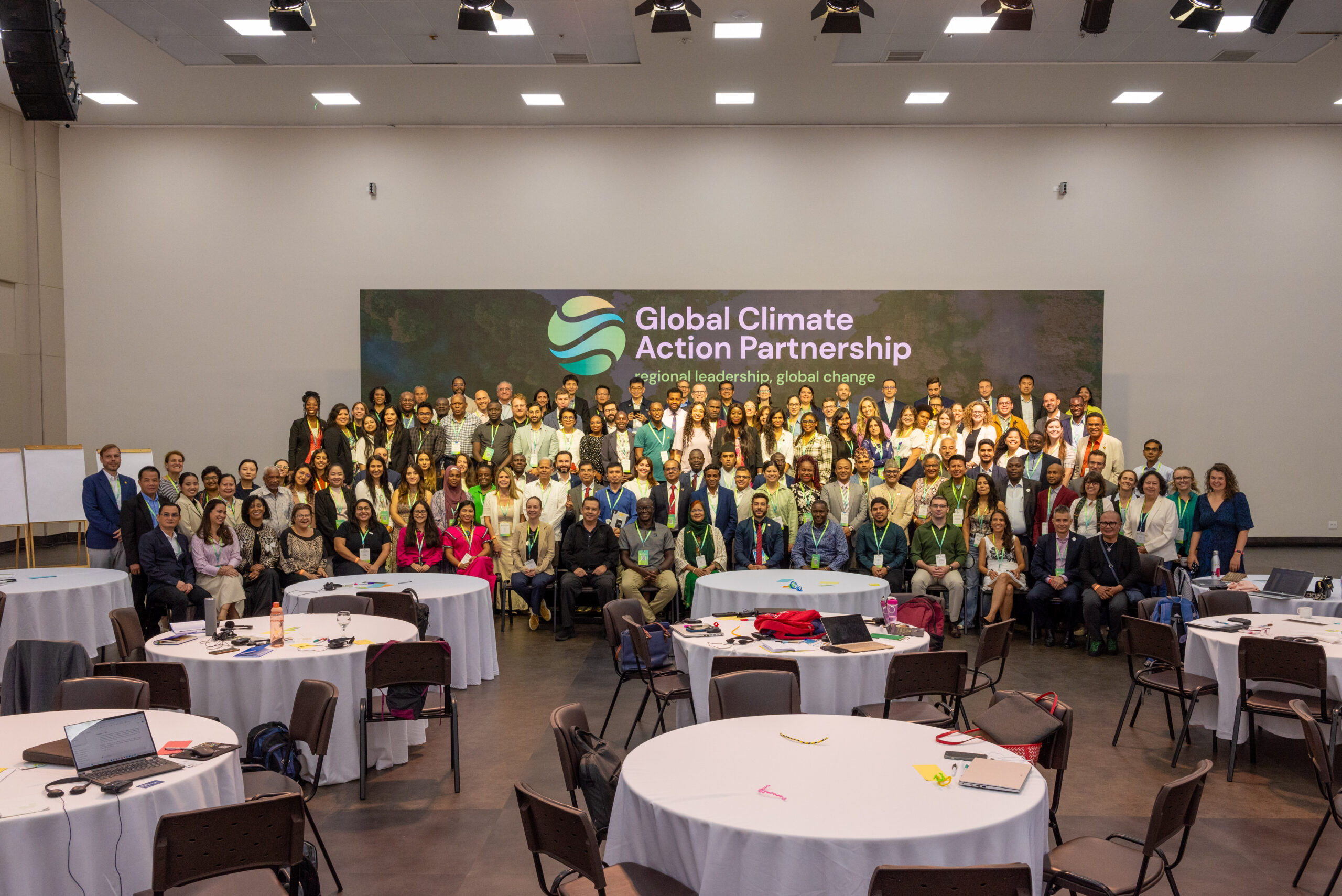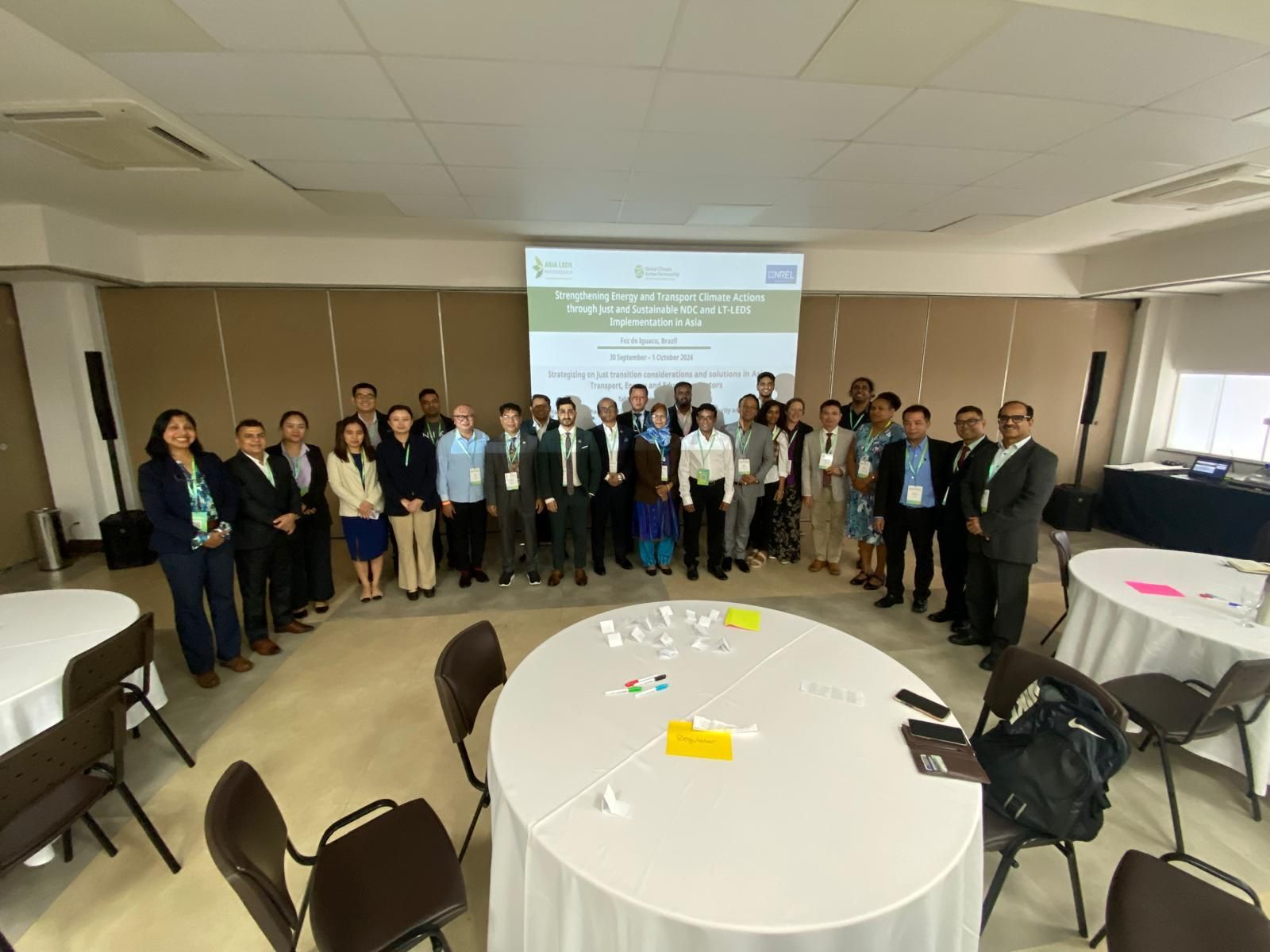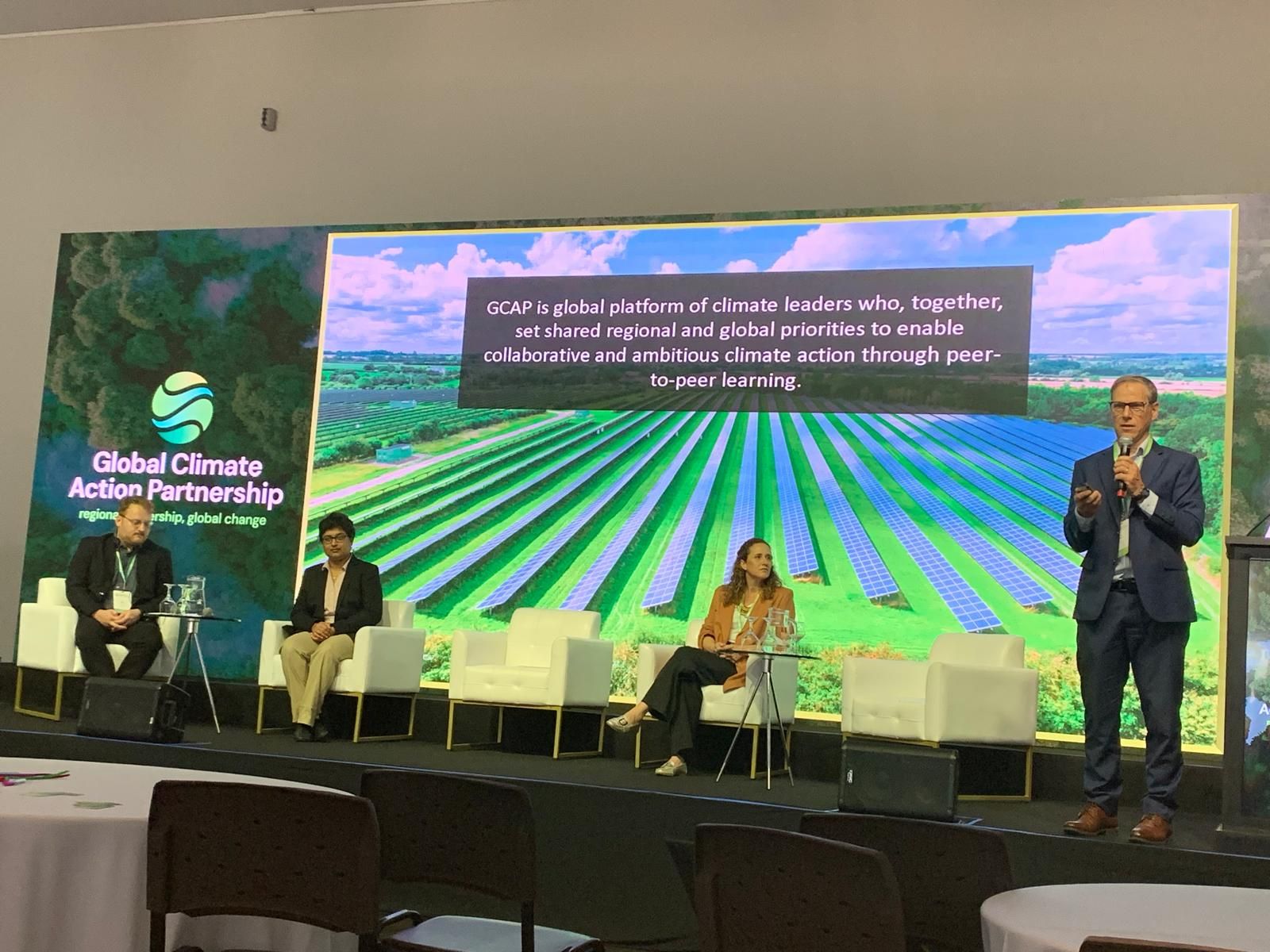Collaborative Climate Action Takes the Center Stage at the GCAP 2024 Workshop

At the GCAP Global Workshop 2024, the Asia LEDS Partnership built on the success of ALP Forum 2024 in Bangkok which focused on advancing decarbonization in the Asia-Pacific region through enhanced NDCs and Long-Term Low-Emission Development Strategies (LT-LEDS). The Global Workshop was a 3-day event with Day 1 and 2 focusing on Asia. Day 1 witnessed participants at the Global Workshop building on ALP Forum outcomes including strategizing on Just Transition considerations and solutions in Asia – Transport, energy and related skilling and work force development as well as technical and country considerations towards building up the green hydrogen supply chain.
Among other sessions on Day 2, ALP highlighted its initiatives and workstreams including Competitive Procurement Center (CPC) for clean power in Southeast Asia. In subsequent sessions, participants brought forth country voices on the clean freight and the role of electric mobility. Participants also held discussions on strategies and policies to enable financing of LEDS. Finally, the ALP held discussions with participants to understand how their needs can be incorporated into the upcoming work plans.
On Day 3, participants emphasized the importance of data-driven climate action, collaboration, and integrated planning across sectors like agriculture, energy, and transport. Participants highlighted the need for strong research institutions, reliable data, and enhanced capacity building to support effective GHG inventories, nature-based solutions, and long-term strategies.
Key themes that emerged from the Workshop include:
- Collaboration and Partnerships: The workshop emphasized the importance of partnerships and collaboration among various stakeholders, including researchers, communities, public and private sectors. This cross-sectoral collaboration is crucial for effective climate action. Knowledge sharing and peer learning among countries were also highlighted.
- Data, Monitoring, and Evaluation: The need for reliable, science-based data for greenhouse gas inventories and climate planning was recognized. Robust systems to track progress and evaluate the effectiveness of climate actions are necessary. Improved data collection and analysis are essential to support decision-making across sectors.
- Integrated Approaches and Holistic Planning: A holistic approach that aligns energy, transport, and agricultural policies with climate goals and Nationally Determined Contributions (NDCs) is necessary. Updated NDCs should incorporate a phased, integrated strategy for implementation, and comprehensive integration of adaptation strategies is key for enhancing resilience alongside mitigation efforts.
- Capacity Building and Technical Support: Enhanced capacity building at local and national levels is needed to equip stakeholders for effective implementation. Technical expertise and financial strategies are required to support local actors in executing climate initiatives. Development of skills and knowledge sharing opportunities are crucial for fostering collaboration and improving local practices.
- Financing and Investment Strategies: The workshop focused on identifying risks associated with financing sustainable projects and utilizing diverse financial instruments, such as green bonds. Aligning financial resources with long-term climate goals is crucial to create bankable projects that attract investment. Emphasizing the co-benefits of climate actions can maximize synergies and encourage stakeholder engagement.
- Sustainability, Adaptation, and Resilience: Prioritizing sustainable solutions in climate strategies, particularly in transport and agriculture, is essential. Integrating climate-smart practices into broader agricultural policies and emphasizing adaptation strategies is necessary to address emerging climate challenges. Addressing equity and inclusion, particularly in access to sustainable transport and decision-making in agriculture, is key.



